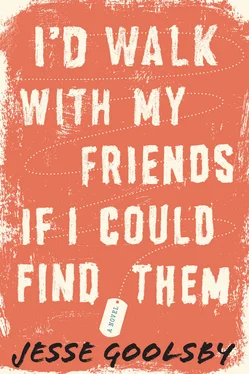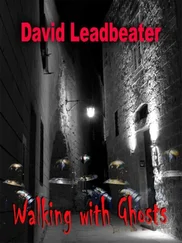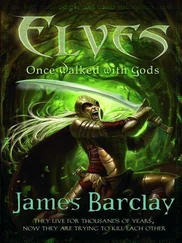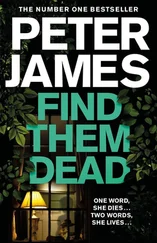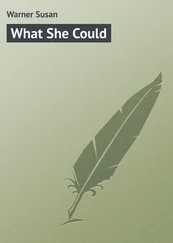“Put your arms out,” says Wintric, miming the arm movement from the couch.
Daniel glances at his father and raises his arms out to his sides. He lifts his left foot a couple inches off the living room floor and wobbles, then stomps the foot down. He tries again.
Wintric’s left foot rests on the carpet. His only remaining toe on the foot — his big one — brushes at the light-pink remnants of an old cranberry juice stain he recently gave up on. His big toe has done this minor back-and-forth dance as long as he can recall, but the involuntary movement has become even more noticeable since the other digits disappeared.
Five years since he last wore his uniform. Wintric steals a mental picture of the green army getup in his closet, sucks in his belly, and wonders if the few extra pounds he carries will be problematic come zipper and button time. The parade organizers have asked him to walk in the patriot group each year since his return to Chester, but this is the first year he has agreed, largely to appease Kristen’s pleading, her insistence that their son would be proud to see his father walk down Main Street with the other veterans who have returned to their California mountain town.
Wintric ignored her requests for years, claiming that he was no longer a soldier, that he had despised his time in the army, that the single reason he kept his uniform was to remind himself of what he so gladly gave up, but the truth is harder for him to reconcile — the rage at his uniform, at hearing the words army, sacrifice, honor, the anger and pride he feels when someone thanks him for his past service or when he sees a map of Afghanistan or photos of flag-draped caskets or White House Medal of Honor receptions on the Internet. He can’t list all the reasons that he said he would wear the uniform this year, and his son may be one of those reasons, but he knows that if he can get it on and walk through the fury and the Main Street chaos, he may just snuff out some of his attacking memories.
The living room smells like bacon from their earlier breakfast, and Wintric hears Kristen’s shower singing from the back bathroom of their two-bedroom home.
On television Rafael Nadal is in the athletic throes of destroying Tomáš Berdych in the 2010 Wimbledon men’s final. NBC’s sports announcers talk over the action, belaboring the fact that England’s queen personally graced the tennis event earlier in the week for the first time in thirty-three years, but what gains Wintric’s full attention — as a man who has never watched or even considered watching tennis — is a point-winning roar from the muscled, animalistic Nadal.
Wintric focuses now on the Spaniard as he moves angrily across the court, stomping, hurling his sculpted body at every shot. There is little grace, but Nadal’s ferocity has Wintric entranced. The ball shoots off Nadal’s racket as if stunned into velocity, into impossible angles that ride the white out-of-bounds lines. After each winner Nadal flexes his bricklike biceps and stares into the stands. During volleys Berdych can only guess where to move next, and when he guesses correctly, his luck prolongs the point a mere few more seconds. Even when he wins a game, only minor fanfare arrives. The battle seems more like boxing than tennis, and although the match just started, Wintric knows it’s over, and he can tell Berdych knows it’s over. Wintric understands that one of the most difficult things is to finish the fights you’re supposed to win, and this is ultimately why he falls for Nadal. Because although the Spaniard is heavily favored, he appears not to realize just how good his odds are, so all of this will end quickly.
After one of the commercial breaks, the commentators interview Monica Seles, a player Wintric has never heard of, and a moment before he changes the channel the television screen cuts to a video: 1993 in the lower left-hand corner, a young Seles, an orange clay court, and a man walks onto the court, then chaos as security grabs the man, and Seles, now curled on the clay, reaches to her back, wincing in pain. Wintric turns the volume up and the words jumble: stabbing, nine-inch boning knife, two years before she came back, never the same player. Wintric thinks of how easy it is to hurt — just walk out of the stands with a knife, simply veer your car a couple feet to either side; he exhales and a memory arrives, his childhood bedroom.
Wintric was twelve, asleep in the room he had wallpapered with posters of NBA basketball players, when his father shook him awake, handed him a revolver, and snap-whispered, “If something happens, shoot for the body.” He was all nerves in their narrow, predawn hallway and scooted forward, left hand on his father’s back, right hand gripping a heavy gun — a loaded gun — and as they glided past his infant sister’s bedroom, Wintric heard knocking. The whole scene cluttered within him: shoot for the body, murderer, knocking, Are we shooting through the door? What criminal knocks? I don’t have shoes on, How big is a bullet? His father disappeared, so he crouched down on the floor in a flood of fear and closed his eyes, then opened them, but there was no difference in the darkness, and still that feverish knocking. He waited for the shot, for his name in the night, and the carpet was cool on his feet. The standoff was taking too long, and then a slurring voice filtered through the door; the voice hurled his father’s name — John — and then lights on, door open, and their drunk neighbor spit out, “Your back yard’s on fire.”
Then dawn, and Wintric watched his father direct the water stream from their garden hose onto a smoking pile of leaves they had left for Glad bags later that day. They would never discover what lit them, and he didn’t know why, but his father still gripped his gun, and so did Wintric. He inspected the silver gun, the bullets’ brass backings. He was unsure whether the revolver’s safety was on, and that was something he should’ve known. It was the kind of thing his father expected him to know when he gave him the combination to the safe in the bedroom. Wintric performed a slight tug on the trigger and watched the revolver’s hammer start its backward ride, but he stopped early and everything slid back into potential. Another tiny tug, and the minuscule movement of the hammer shocked him. His father shook the morning cold out in his shorts, nightshirt, and old slippers and stared mesmerized at the water flow, and Wintric realized then that he could shoot him. Not that he wanted to, only that he could, with minimal effort. He could kill him if he aimed straight enough. Without prompt he stroked this strange charge of power and alarm that people must feel when they realize they can do absolutely anything they want if they have the nerve.
Wintric turns the tennis match off, runs his fingers through his shoulder-length hair, and watches Daniel — the one-legged balancing act now over — bang his fist on the wooden coffee table.
Daniel, short for three, wears a 49ers shirt and Lightning McQueen underwear. His son smiles at him, and the genuine expression wrenches Wintric and the familiar pit inside him opens, the competing hate and desperation and care for this child, an accident, an “orgasm gone wrong” he told Kristen upon hearing the news of her pregnancy. On the days he feels something for the boy it angers him that his son resembles Kristen more than him. Especially lately, Daniel’s large nose and brown eyes feel like a cruel betrayal. Wintric has had a harder time lately fighting off the days that circle in upon him, the logging town he swore he would escape, the girl he thought he was leaving forever as he headed off to basic training, the half a foot that slices him with shame.
Wintric stares at his left foot, and even after all these years, it seems more a sad prop than part of his body. He taps into the hate, how in his entire life he has really wanted to kill only one person — even counting the war, just one — how he has failed to act on that constant desire, how each day he continues to fail, how the girl he did kill has nothing to do with this focused resentment.
Читать дальше
